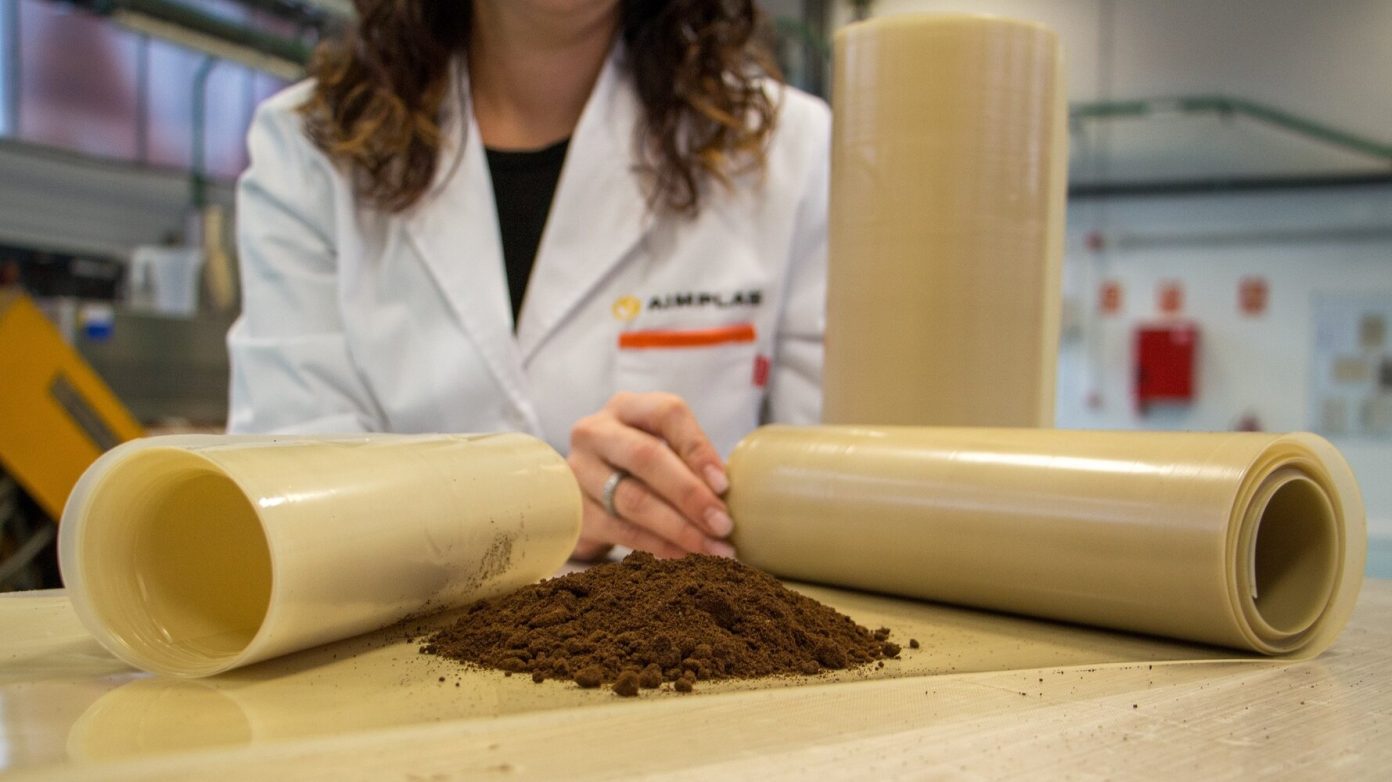AIMPLAS research investigates converting coffee-grounds waste into plastic film

Converting biological waste into resources is one of the keys to a circular economy, and the main objective of the European WaysTUP! Project, financed by the Horizon H2020 program, is working on different lines of research to establish new value chains for urban biowaste. Within the framework of this project, AIMPLAS, the Plastics Technology Centre, has produced a plastic film from used coffee grounds, thus transforming waste into a source of high-value products.
In the words of Nuria López, the project’s principal investigator at AIMPLAS, “WaysTUP! is a clear example of how biowaste can play an important role in the transition toward a circular economy by avoiding biowaste generation and harnessing its potential as a source of high-value secondary resources. In our case, we’re transforming coffee waste into plastic film for packaging. Meanwhile, other project partners, such as SAV – Agricultores de la Vega de Valencia, are project coordinating partners responsible for recovering waste to produce food additives, feed and oils for the food and cosmetic industries.
These are three different ways to recover common waste, in this case, coffee. Thanks to this project, various forms of urban biowaste, including fish and meat waste, and used coffee grounds and cooking oil, are being transformed into new bio-based products, such as food additives, condiments, insect protein, bioethanol, bio-solvents and bioplastics for packaging.
The bio-based plastic film produced by AIMPLAS was obtained from PHA from restaurant coffee grounds collected by Bio-Bean (United Kingdom). AIMPLAS first formulated the PHA so it could be processed by extrusion and then manufactured the film, which can be used in different types of flexible packaging.
The WaysTUP! Project aims to improve the current perception of citizens and local communities about the importance of urban biowaste as a resource. The idea is to promote the community’s active participation in selective urban-biowaste collection for subsequent recovery. In addition, local administrations are receiving guidelines on adopting new organizational models in favor of urban biowaste recovery, as well as European-level evidence-based policy recommendations for decision-making.